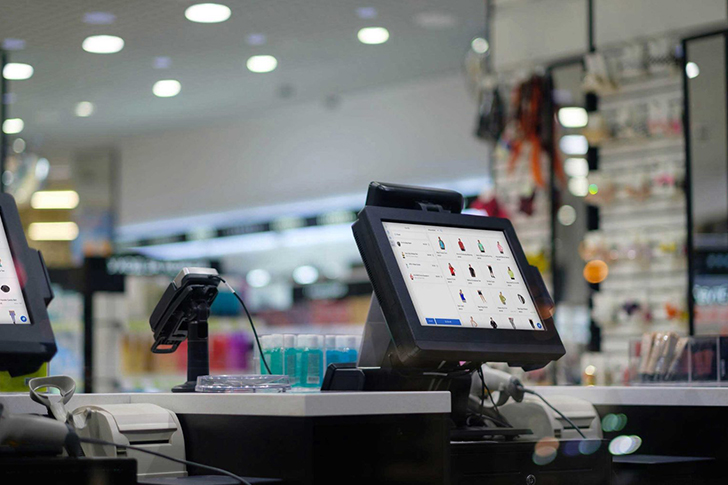Improving Retail Operations with POS and Inventory Management Systems
The retail industry is undergoing a rapid transformation, heavily influenced by technology. Among the most significant advancements are Point of Sale (POS) and inventory management systems. These technologies not just streamline operations but also enhance customer satisfaction and boost sales. Retailers implementing these systems can expect a marked improvement in efficiency and accuracy, ultimately contributing to a healthier bottom line.

The Role of Modern POS Systems in Retail
In the past, POS systems were primarily used to execute transactions. Today, they serve as comprehensive retail management tools that handle everything from sales processing and inventory management to customer relationship management (CRM) and business analytics. A modern POS system can provide real-time data analysis, helping retailers make informed decisions that enhance operational efficiency and profitability.
According to a 2021 report by Grand View Research, the global POS terminals market size was valued at USD 69.0 billion in 2020 and is expected to grow at a compound annual growth rate (CAGR) of 7.8% from 2021 to 2028. This growth is indicative of the increasing reliance on advanced POS systems to meet the rising retail demands and customer expectations.
Enhancing Inventory Accuracy with Integrated Solutions
One of the biggest challenges in retail is managing inventory efficiently. Overstocking leads to increased operational costs, while understocking results in missed sales opportunities. An integrated POS and inventory management system tracks product levels in real-time, providing alerts when stocks are low and automatically generating purchase orders to replenish inventory, thus ensuring that the balance is maintained.
Statistics from a 2020 survey by the National Retail Federation (NRF) reveal that inventory shrinkage costs retailers about 1.38% of their total sales, a figure amounting to approximately $50.6 billion annually. The implementation of robust inventory management systems can significantly reduce these losses by enhancing the accuracy of stock levels and thereby minimizing shrinkage due to theft, administrative errors, or supplier fraud.
Boosting Sales Through Data-Driven Insights
Modern POS systems extend beyond transaction processing and play a pivotal role in providing data-driven insights. These systems can track customer buying patterns, preferences, and frequencies, thereby helping retailers tailor their marketing strategies to target specific consumer segments. This personalized approach not only improves customer experience but also boosts sales and customer loyalty.
For instance, a comprehensive analysis might reveal that a particular product sells faster on weekends, prompting the retailer to increase stock levels during these times or run promotional campaigns to capitalize on increased traffic. Reports suggest that businesses that leverage customer behavior data outperform peers by 85% in sales growth and more than 25% in gross margin.
Improving Customer Experience with Seamless Transactions
Customers today expect quick and hassle-free shopping experiences. A study by Forrester suggests that improving the customer experience can increase a retailer’s revenue by 5% to 10%. POS systems contribute to this by facilitating faster and more efficient checkouts. Features like contactless payments, mobile POS, and self-service kiosks have further streamlined the checkout process, significantly reducing wait times and enhancing customer satisfaction.
Additionally, POS systems can integrate with loyalty programs providing seamless ways to apply discounts and accumulate points, thus enhancing the overall shopping experience. Such integration ensures that customers feel valued and are more likely to return, which is crucial in a competitive retail environment.
Cost Reduction Through Efficient Management
Another significant advantage of implementing POS and inventory management systems is the potential for cost reduction. These systems automate many aspects of the retail operation, reducing the need for manual intervention and thereby decreasing labor costs. Moreover, by optimizing inventory levels, retailers can reduce carrying costs and losses from unsold goods.
A report from IHL Group highlighted that optimally implemented POS and inventory management systems can reduce inventory costs by 10% and increase sales by 2% to 8%, clearly demonstrating their efficiency benefits. These systems also facilitate better financial planning through accurate and real-time reporting, helping businesses manage their cash flow more effectively.
In conclusion, as retail operations become more dynamic and complex, the need for efficient, reliable, and integrated POS and inventory management systems becomes ever more crucial. These solutions not only streamline operations but also provide strategic advantages through enhanced customer insights, improved operational accuracy, and cost management. Investing in such technologies is not merely about keeping up with trends but about setting a foundation for sustainable growth and competitive advantage in the fast-evolving retail landscape.







Recent Comments